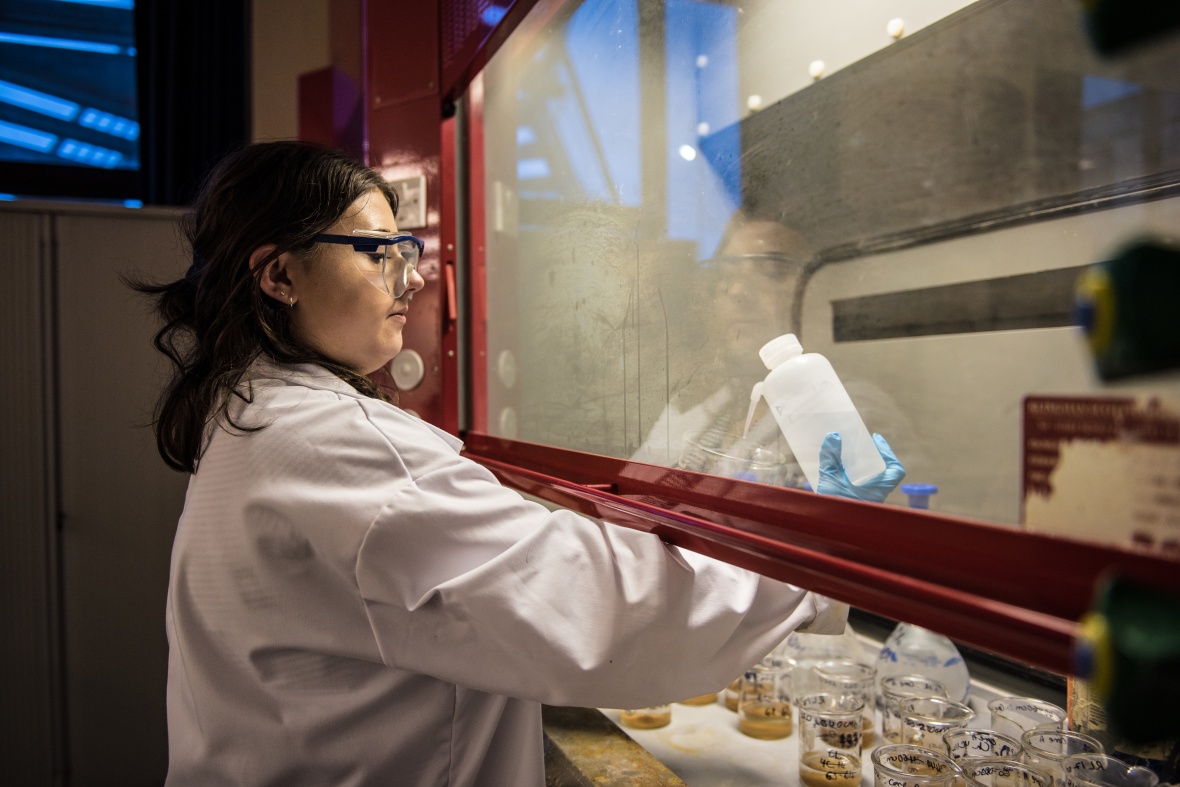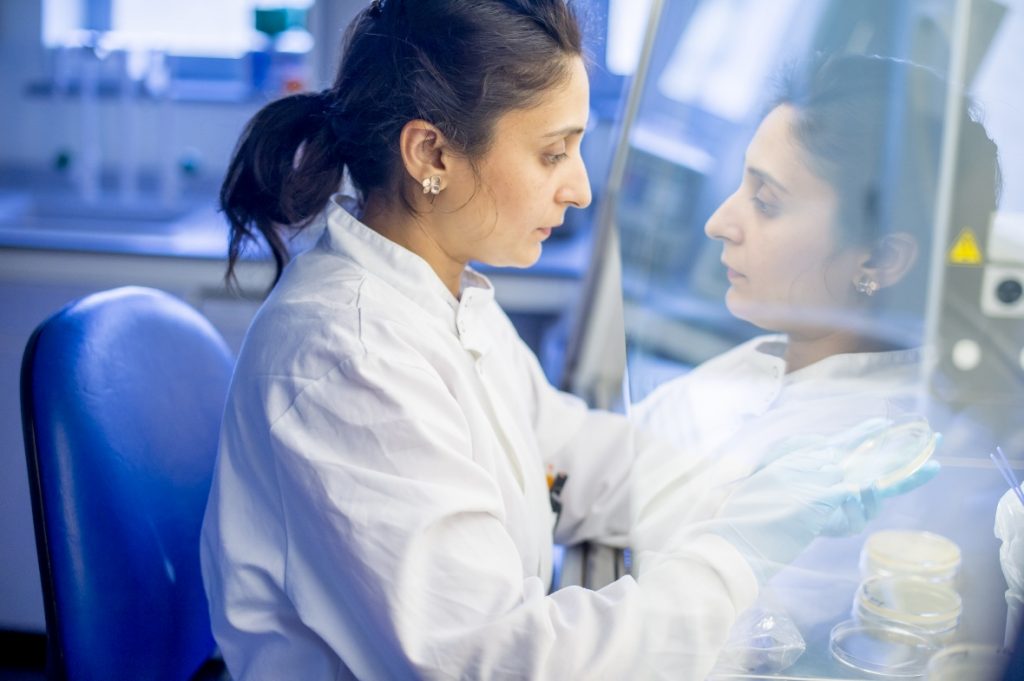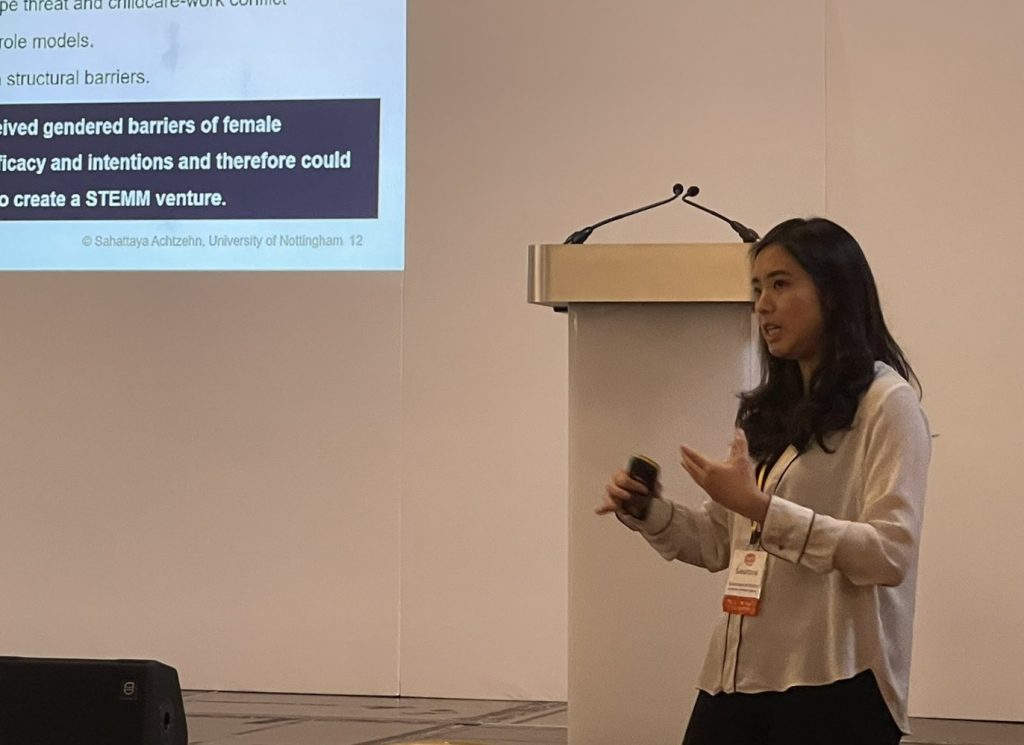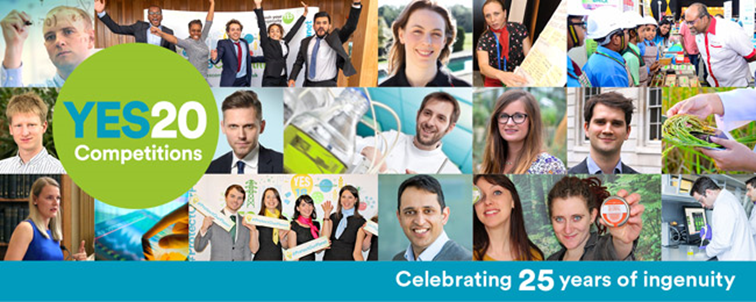
March 8, 2022, by aczjb1
Promoting Young STEMM Women’s Entrepreneurial Activities – Sahattaya Achtzehn
Here at the Haydn Green Institute, we’re committed to progressing equality, diversity and inclusion in the world of entrepreneurship. Central to this is a focus on women entrepreneurs, both in our academic research and in our practical support via the Ingenuity Lab, Ingenuity Programme and Young Entrepreneurs Scheme.
At the intersection of HGI’s research and practice is PhD candidate Sahattaya Achtzehn, who is currently researching how the Young Entrepreneurs Scheme (YES) is breaking down barriers for women in Science, Technology, Engineering, Mathematics and Medicine (STEMM) entrepreneurship.
To mark International Women’s Day 2022, Sahattaya has written a guest post for the Entrepreneurship at Nottingham blog, sharing the background behind her research and looking into how YES is #BreakingtheBias.
—
It is widely acknowledged that STEMM careers are male dominated. According to recent UCAS data provided by HESA, just 35% of STEMM students in higher education in the UK are women.
This underrepresentation carries over into STEMM entrepreneurship, which has been a longstanding issue for economic development in the UK. Despite extensive support and measures, government policy aimed at tackling this gender imbalance has yielded limited success so far: just 11% of British STEMM businesses are owned by women, compared to 33% of non-STEMM businesses (WES, 2018).
Psychology may be a contributing factor to this imbalance. It is suggested that entrepreneurs are, typically, considered to be male. Academic research has shown that the words used to describe entrepreneurs – such as assertive, competitive, confident and risk-taking – are words commonly used to describe men (Ahl, 2004). This masculine ideal, and the language used to discuss entrepreneurs and entrepreneurship, may leave women less likely to see themselves as successful entrepreneurs.
There have been concerns that this may be reproduced within entrepreneurship education (Jones, 2014), and this could have a knock-on effect of women having negative self-perceptions around their suitability for entrepreneurship, which then influences their perceived ability and intentions to start a business (Jones and Waarhuus, 2018).
Business plan competitions have been widely promoted across the EU as a best-practice vehicle for teaching in entrepreneurship education, as they allow students to gain real-life experience in an entrepreneurial setting, accessing professional networks through working in groups and interacting with external stakeholders.
However, there has been criticism that these competitions do little to promote equality, particularly for participants from different social backgrounds. Catherine Brentnall et al. (2018) found students from lower socio-economic backgrounds can be demotivated by such competitions, seeing themselves as less suitable to starting a business because they perceive themselves as relatively weaker in terms of presentation skills and the attitudes required by the competition judges.
My research focuses on STEMM women (PhD and Postdoc students) who participated in the Young Entrepreneurs Scheme (YES), an innovative global business plan competition for early career researchers in STEMM founded here at the University of Nottingham.
Given concerns that entrepreneurship education may be gendered and negatively affect women’s perceived entrepreneurial ability and intentions, I have been assessing whether or not a gender bias is perceived and whether there are any gender-based differences in relation to different factors upon women YES participants. The competition has been running for over 25 years, with more than six thousand participants since its inception, and is known for its high representation of women participants: in 2021, YES had a ratio of 59% women to 41% men participants.
I’m in a final year of my PhD study and the findings I have discovered are surprising. Last year, I was awarded Best Paper in Enterprise Education Track award at the recent Institute for Small Business and Entrepreneurship (ISBE) conference – the UK’s largest conference in entrepreneurship. If you would like to hear more about my findings, stay tuned for my future article.
—
“It’s fantastic that YES, over the 26 years the competition has been running, is known for its high representation of women participants,” said Tracey Hassall-Jones, Manager of the Young Entrepreneurs Scheme. “Year on year, our incredible network of alumni, industry stakeholders and advocates raise the visibility of women succeeding in STEMM with YES providing a platform for role models to empower others as we celebrate their achievements. I’m really looking forward to reading Sahattaya’s findings, which will hopefully reflect the equality and gender balance we see in our participants.”
Sahattaya Achtzehn is a PhD candidate in Entrepreneurship and Innovation at Nottingham University Business School.
No comments yet, fill out a comment to be the first




Leave a Reply